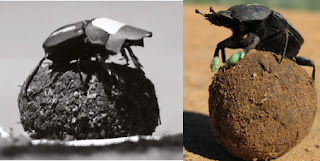Figure 1: Beetles wearing clothes. Adapted from [1] and [2]
Done by Marie Dacke and Jochen Smolka (and many others) this work has led to many interesting insights, all of which are overshadowed by the research methods of the group.
Namely, these guys love to put clothes on beetles.
The picture on the right of the dung beetle (Scarabaeus lamarcki) wearing some stylish green silicon boots comes from the much-publicized paper in late 2012 by Smolka et al entitled "Dung Beetles use their dung ball as a thermal refuge". Published in Current Biology, this paper found out that the balls of dung constructed and rolled around by the intrepid little dung beetles provided the beetles with a place to escape the scorching desert sand. Not only that, the dung balls also acted as a heat sink!
Since the balls are cooler than the surrounding sand, they absorb heat from it. Dung beetles push their balls in front of them as they move through the desert, and this can actually lower the temperature of the surrounding sand by 1.5 degrees C. (This is about 34 degrees Fahrenheit, for all those unfamiliar with metric).
Back to the boots- Smolka et al coated the beetle's legs with heat-resistant silicon in order to gauge which legs the beetles use to sense heat. It turns out they seem to sense the hot sand with the protibia of their front legs.
The picture on the left shows a beetle with a rather dashing hat. This hat was used in the 2013 paper by Dacke et al titled "Dung Beetles use Milky Way for orientation", also published in Current Biology.
In this paper, the authors determined that a different species of dung beetle (Scarabaeus satyrus) used not only stars in the night sky, but specifically the Milky Way galaxy to keep themselves rolling their dung ball in a straight line.
When the beetle's vision was obscured with these stylish hats, they took significantly longer to push their dung ball out of a predetermined arena because they couldn't seem to push it in a straight line.
A further battery of tests confirmed that these beetles actually use the Milky way galaxy specifically to orient themselves and keep moving in a straight line.
With all that in mind, I encourage whomever reads this to go and put clothes on any animal you find, and record your observations.
Trust me, it is for science.
REFERENCES
[1] Dacke et al 2013. Dung Beetles Use the Milky Way for Orientation. Current biology : CB doi:10.1016/j.cub.2012.12.034
[2] Smolka et al 2012. Dung Beetles use their dung balls as a mobile thermal refuge.doi:10.1016/j.cub.2012.08.057

